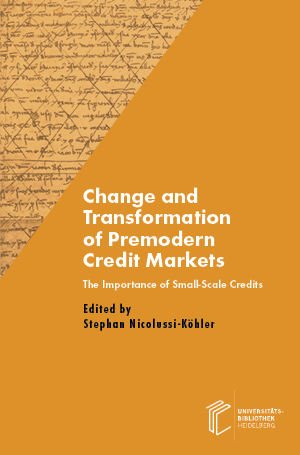Zitationsvorschlag
Lizenz (Kapitel)

Dieses Werk steht unter der Lizenz Creative Commons Namensnennung - Weitergabe unter gleichen Bedingungen 4.0 International.
Identifier (Buch)
Veröffentlicht
Trading Networks, Credit, and Trust: The Hansards’ Capital Raising Revisited
Abstract Since the late twelfth century, Low-German merchants — based on privileges in London, Novgorod, Bruges, and Bergen — succeeded in largely monopolising Baltic Sea trade. The Hansards used several formal contractual schemes to raise capital, spread commercial risk, and share profits, but predominantly they traded within family networks and preferred “reciprocal trade”, which was handled without formal contract and formal credit, and often even without cash transfer. By doing this, the Hansards could circumvent several shortcomings of their system of trade — a notorious scarcity of precious metals and money in Northern Europe and a lack of venture capital. “Reciprocal trade” for long was a viable institution, even promoting the Hansards’ limited use of money and credit. This in turn had an adverse long-term effect on economic growth in the Baltic Sea region because the development of capital markets and sophisticated instruments of trade finance was inhibited, this restricting a further expansion of Hanseatic trade around 1500.
Keywords network trade; reciprocal trade; Hanse; institutional analysis; path dependence; lock-in



